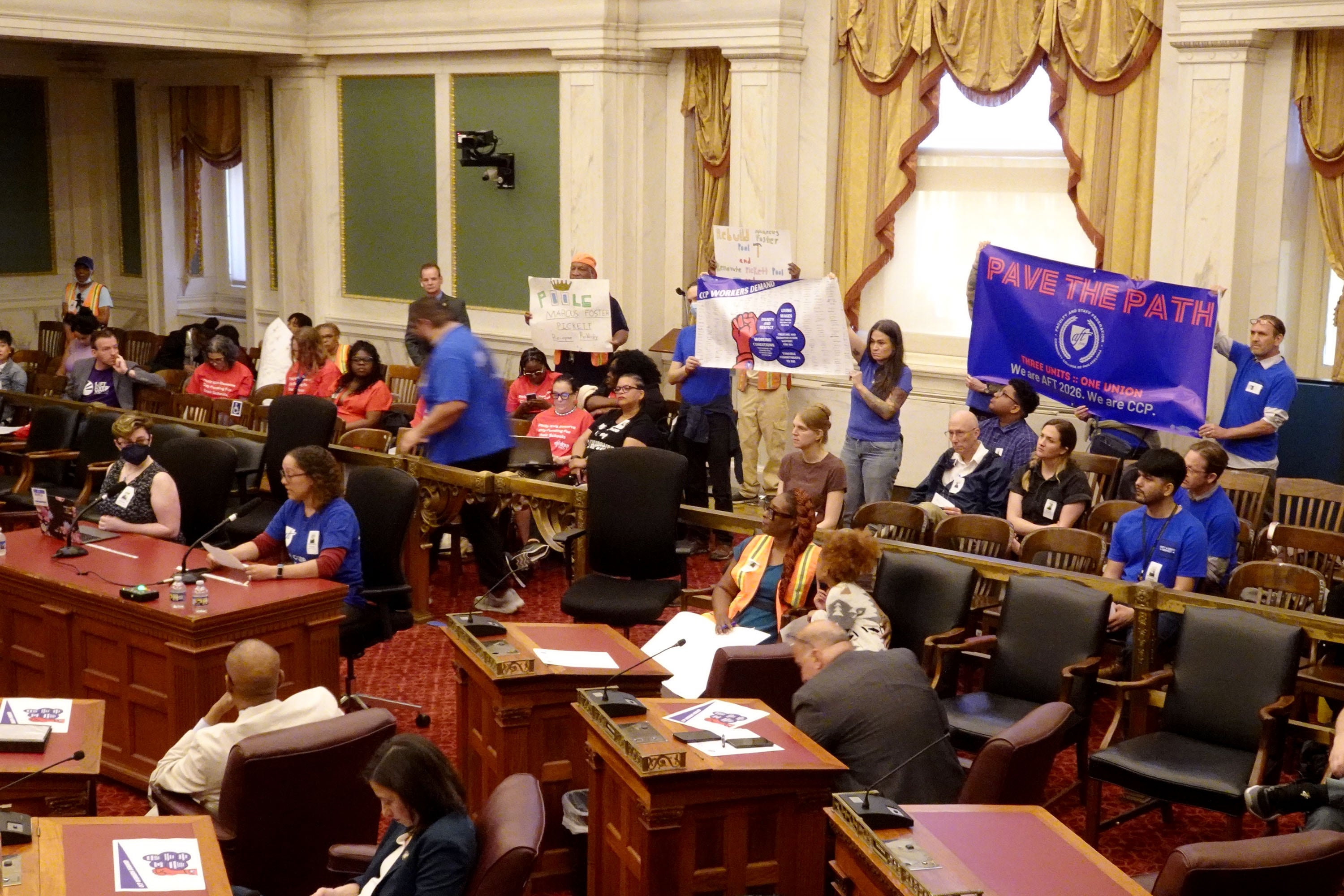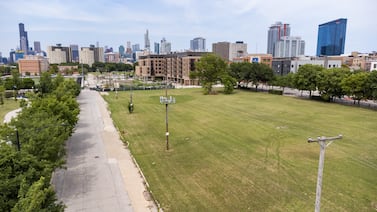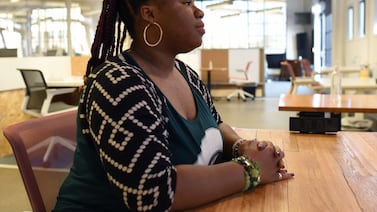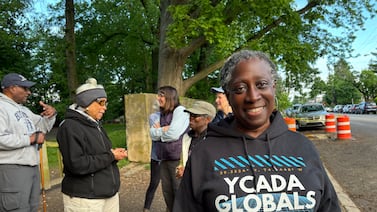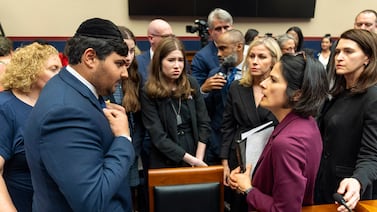Sign up for Chalkbeat Philadelphia’s free newsletter to keep up with the city’s public school system.
Philadelphia residents urged their city representatives on Wednesday for more funding for education and out-of-school activities in this year’s budget.
Parents, teachers, students, and advocates testified at the City Council’s public budget hearing that they want $20 million more for the Community College of Philadelphia to provide subsidized transportation and child care to working students. They want to increase the share of property tax revenue that goes to the school district. They want more free preschool seats. And they want the city to renovate and reopen several public pools.
These requests come at a pivotal time for City Councilmembers who are currently engaged in the process of crafting their budget that will reflect their priorities in the year ahead. This year’s budget comes with the added urgency of the end of millions in federal pandemic aid later this year that could hit public schools hard.
Sara Morningstar, executive director of the local nonprofit group After School Activities Partnerships, told councilmembers that thousands of Philadelphia students stand to lose access to after-school programming if the city and school district don’t come up with a plan to continue funding the hundreds of programs across the city that have been dependent on COVID aid.
Several other residents urged their councilmembers on Wednesday to boost the percentage of property tax revenue that goes to the school district from 55% up to 58%.
In her proposed budget, Mayor Cherelle Parker recommended the school district should get 56% of that tax revenue. Parker said this week she would like the percentage to shift as high as 58%, but that such an increase would take time to phase in.
“Children are not the future, they are the now,” Sheryl-Amber Edmondson, grants manager for the Fund for The School District of Philadelphia, told councilmembers. “What we do in this very moment with our power matters.”
Among the groups asking for more funding were faculty and students from the Community College of Philadelphia (CCP). Members of the faculty union appealed to councilmembers for $20 million more in operating aid for their school. They say that money could go towards benefits for students like subsidizing transportation costs, providing child care for young parents working their way through school, and providing increased salaries for teachers and staff — many of whom make less than a living wage, they said.
In her budget proposal, Mayor Cherelle Parker announced a new workforce program at the college called the “City College for Municipal Employment” and a proposed increase of $10 million to the school to pay for it, on top of the $51 million the college already gets in its annual contribution.
While the faculty said Wednesday they appreciate the focus on preparing students for the workforce, they said what the school really needs is more operating aid to avoid tuition increases and provide the broader student population with educational support.
Marissa Johnson-Valenzuela, a tenured full-time faculty member, told Chalkbeat the school’s success is inextricably linked to the city’s public school system. Often, she said, students come into the college from the district needing extra help, tutoring, and remediation.
Charlie Allison, another faculty member, testified he has seen his students miss class because they couldn’t afford the SEPTA ride or had to look after a child or young family member. He said like the city’s public schools, the Community College of Philadelphia is struggling with old buildings and a lack of proper temperature controls.
Jaritsa Hernandez-Orsini, treasurer of the college’s student government association, told councilmembers the education and support she’s received as a student at CCP has been the “best thing that’s ever happened” to her and more funding would allow the school to serve other students like her.
Hernandez-Orsini said she was a young person in the foster care system and has experienced trauma and hardship growing up in Philadelphia, but is set to graduate this Saturday and has been admitted to a four-year university to continue her education.
“Amid the chaos and despair, CCP welcomed me with open arms and provided me with the resources and support that I needed to regain my life,” she said.
Elsewhere at City Hall on Wednesday, seven of the nine members of the new Philadelphia Board of Education were sworn in to begin their four-year terms. Parker said Wednesday that her appointees “bring the right balance of experience and change” to governing one of the nation’s largest school districts.
Not sworn in were Crystal Cubbage, who had a professional commitment she could not reschedule, and Joyce Wilkerson, the former board president. Wilkerson has not been approved by the City Council but is remaining on the board at Parker’s request.
Dale Mezzacappa contributed to this story.
Carly Sitrin is the bureau chief for Chalkbeat Philadelphia. Contact Carly at csitrin@chalkbeat.org.
